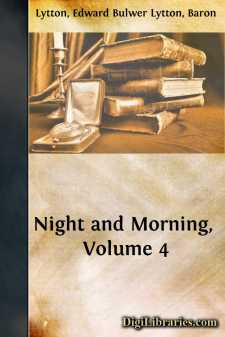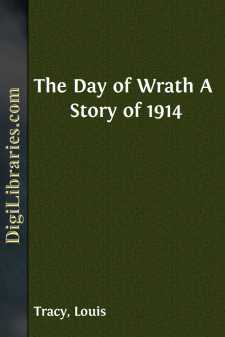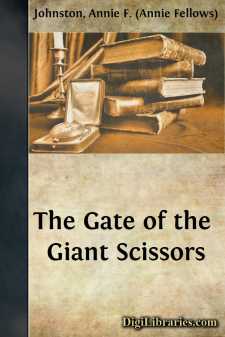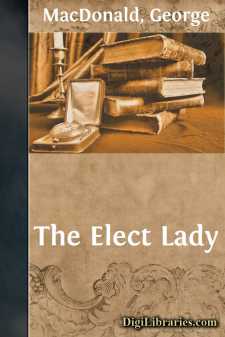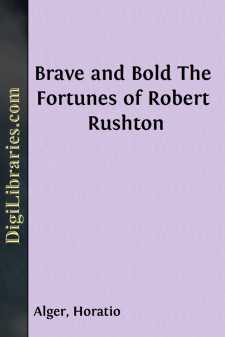Fiction
- Action & Adventure 180
- Biographical 15
- Christian 59
- Classics
- Coming of Age 5
- Contemporary Women 3
- Erotica 8
- Espionage/Intrigue 12
- Fairy Tales, Folklore & Mythology 236
- Family Life 169
- Fantasy 117
- Gay 1
- General 596
- Ghost 32
- Historical 808
- Horror 43
- Humorous 160
- Jewish 25
- Legal 4
- Medical 22
- Mystery & Detective 315
- Political 49
- Psychological 41
- Religious 64
- Romance 159
- Sagas 11
- Science Fiction 730
- Sea Stories 113
- Short Stories (single author) 537
- Sports 10
- Suspense 1
- Technological 8
- Thrillers 2
- Urban Life 31
- Visionary & Metaphysical 1
- War & Military 173
- Westerns 199
Classics Books
Sort by:
CHAPTER I. "O that sweet gleam of sunshine on the lake!" WILSON'S City of the Plague If, reader, you have ever looked through a solar microscope at the monsters in a drop of water, perhaps you have wondered to yourself how things so terrible have been hitherto unknown to you—you have felt a loathing at the limpid element you hitherto deemed so...
more...
CHAPTER I. When Edward Temple was about eight or nine years old he was afflicted with a disorder of the eyes. It was so severe, and his sight was naturally so delicate, that the surgeon felt some apprehensions lest the boy should become totally blind. He therefore gave strict directions to keep him in a darkened chamber, with a bandage over his eyes. Not a ray of the blessed light of heaven could be...
more...
PROLOGUE. Beside a winding creek of the Lynher River, and not far from the Cornish borough of Saltash, you may find a roofless building so closely backed with cherry-orchards that the trees seem by their slow pressure to be thrusting the mud-walls down to the river's brink, there to topple and fall into the tide. The old trees, though sheeted with white blossom in the spring, bear little fruit,...
more...
by:
John Lord
SAINT ANSELM. A. D. 1033-1109. MEDIAEVAL THEOLOGY. The Middle Ages produced no more interesting man than Anselm, Abbot of Bec and Archbishop of Canterbury,--not merely a great prelate, but a great theologian, resplendent in the virtues of monastic life and in devotion to the interests of the Church. He was one of the first to create an intellectual movement in Europe, and to stimulate theological...
more...
by:
Louis Tracy
CHAPTER I THE LAVA-STREAM “ For God’s sake, if you are an Englishman, help me!” That cry of despair, so subdued yet piercing in its intensity, reached Arthur Dalroy as he pressed close on the heels of an all-powerful escort in Lieutenant Karl von Halwig, of the Prussian Imperial Guard, at the ticket-barrier of the Friedrich Strasse Station on the night of Monday, 3rd August 1914. An officer’s...
more...
CHAPTER I. IN THE PEAR-TREE. Joyce was crying, up in old Monsieur Gréville's tallest pear-tree. She had gone down to the farthest corner of the garden, out of sight of the house, for she did not want any one to know that she was miserable enough to cry. She was tired of the garden with the high stone wall around it, that made her feel like a prisoner; she was tired of French verbs and foreign...
more...
by:
George MacDonald
CHAPTER I. LANDLORD'S DAUGHTER AND TENANT'S SON. In a kitchen of moderate size, flagged with slate, humble in its appointments, yet looking scarcely that of a farmhouse—for there were utensils about it indicating necessities more artificial than usually grow upon a farm—with the corner of a white deal table between them, sat two young people evidently different in rank, and meeting upon...
more...
by:
Horatio Alger
CHAPTER I. THE YOUNG RIVALS. The main schoolroom in the Millville Academy was brilliantly lighted, and the various desks were occupied by boys and girls of different ages from ten to eighteen, all busily writing under the general direction of Professor George W. Granville, Instructor in Plain and Ornamental Penmanship. Professor Granville, as he styled himself, was a traveling teacher, and generally...
more...
by:
George MacDonald
CHAPTER I. SONG. I confess I was a little dismayed to find what a solemn turn the club-stories had taken. But this dismay lasted for a moment only; for I saw that Adela was deeply interested, again wearing the look that indicates abstracted thought and feeling. I said to myself: "This is very different mental fare from what you have been used to, Adela." But she seemed able to mark, learn, and...
more...
-1- "Jeeves," I said, "may I speak frankly?" "Certainly, sir." "What I have to say may wound you." "Not at all, sir." "Well, then——" No—wait. Hold the line a minute. I've gone off the rails. I don't know if you have had the same experience, but the snag I always come up against when I'm telling a story is this dashed difficult problem...
more...


